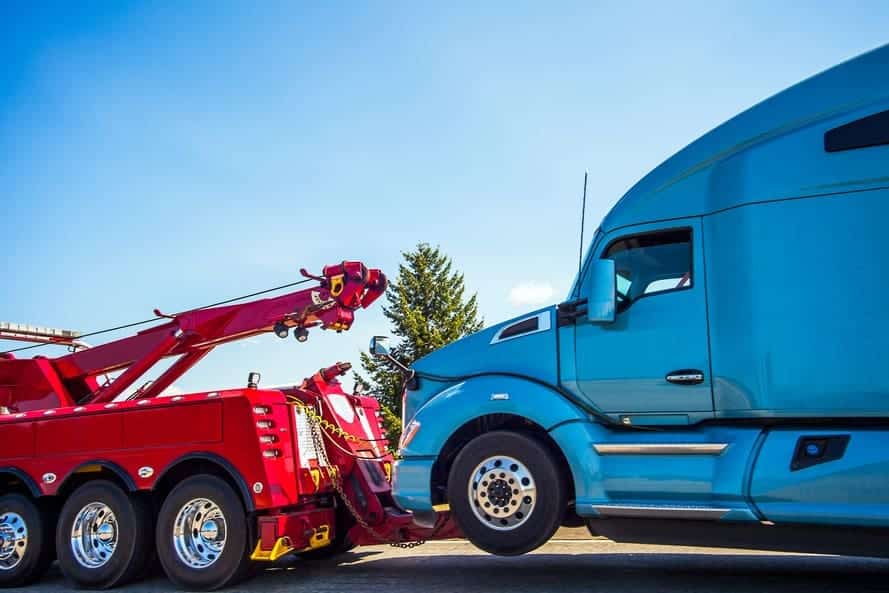Truck accidents are often devastating and can result in serious injuries or even death. If you or a loved one has been injured in a truck accident, it is important to understand how negligence is established in these cases. This will help you determine whether you have a claim for personal injury damages from your insurance company.
In a personal injury lawsuit, proving negligence involves demonstrating that the defendant owed a duty and breached it in the same or similar circumstances, causing physical injury. This is the cornerstone for personal injury cases where you must prove negligence to establish a negligence claim, often measured against the conduct of a reasonable person.

What Negligence Means in a Truck Accident?
Negligence is a legal term that refers to ordinary negligence or to the failure of a reasonable person to exercise reasonable care. In the context of a truck accident, this means that the truck driver or another party owed a duty of care to the plaintiff and breached that duty by acting carelessly or recklessly. This breach of duty must have been the proximate cause of the plaintiff’s injuries, meaning that the injuries would not have occurred but for the defendant’s breach of duty.
Elements of negligence in truck accidents involve a legal definition, proving duty, breach, proximate cause, and damages — a complex process best navigated with the guidance of an experienced personal injury lawyer. When pursuing a negligence claim in truck accidents, understanding the actions of a reasonable or prudent third person’s actions become crucial, as it sets the standard for responsible behavior in motor vehicle accidents.
Recommended Article: 18 Wheeler
Causes of Truck Accidents
There are many potential causes of truck accidents. Some of the most common include:
- Driver Error: This includes things like speeding, distracted driving, drunk driving, and fatigued driving.
- Vehicle Maintenance Issues: This includes things like worn brakes, defective tires, and faulty equipment
- Improper Loading: This can cause a truck to be overweight or unbalanced, making it more difficult to control.
- Road Conditions: This includes things like potholes, slick roads, and narrow lanes.
Recommended Article: The Long-Term Effects of Truck Accident Injuries
Types of Negligence in Truck Accidents
There are many other drivers with different types of negligence that can contribute to a truck accident. Some other elements of negligence and the most common types of negligence cases include:
- Distracted Driving: This includes things like talking on the phone, texting, eating, or fiddling with the radio.
- Speeding: This is a major factor in many truck accidents, as it can increase the severity of injuries and make it more difficult for the driver to avoid a collision.
- Driving While Fatigued: Truck drivers are often under pressure to meet deadlines, which can lead to them driving while fatigued. This can impair their judgment and reaction time, making them more likely to cause an accident.
- Driving Under the Influence: Truck drivers are subject to strict regulations regarding alcohol and drug use. However, some truck drivers still choose to drive under the influence, which can have disastrous consequences.
In the realm of personal injury cases, understanding contributory negligence is crucial — evaluating the actions of both parties in the context of a legal duty and its impact on the plaintiff’s injury. This assessment is integral to a negligence claim, often measured against the conduct of a reasonable person in truck accidents.
Recommended Article: Truck Accident Lawsuit
Elements Required to Established Negligence
To prove negligence in a particular case of a truck accident, the plaintiff’s personal injury claim must establish the following elements:
- Duty of Care: The truck driver or other party owed a duty of care to the plaintiff. This means that they had a legal obligation to act in a reasonably careful manner to avoid harming the plaintiff.
- Breach of Duty: The truck driver or other party breached their duty of care by acting carelessly or recklessly. This means that they failed to act as a reasonably prudent person who would have acted in the same situation.
- Proximate Cause: The breach of duty was the proximate cause of the plaintiff’s injuries. This means that the injuries would not have occurred but for the breach of duty.
- Damages: The plaintiff suffered damages as a result of the injuries. This includes things like medical expenses, lost wages, pain and suffering, and emotional distress.
In personal injury lawsuits, a plaintiff must show that the defendant owed a duty of care, breached it, and the care breach caused physical harm or injury. This is the foundation for both personal injury claims and negligence claims, gauged against the actions of a reasonable person.
Recommended Article: Does a Truck Jackknifing Mean They Are at Fault?
Possible Negligent Parties in a Truck Accident
Many different parties may be held liable for negligence in a truck accident. Some of the most common legally responsible parties include:
- The Truck Driver: The truck driver is often the most likely party to be liable for a truck accident. However, there may be other parties who share liability, such as the trucking company, the owner of the truck, or the manufacturer of the truck or its parts.
- The Trucking Company: Responsible for ensuring proper training, maintenance, and adherence to safety regulations.
When evaluating possible negligent parties in a truck accident beyond the truck driver, it’s crucial to understand the concept of comparative negligence — weighing how each party may have contributed to the plaintiff’s injury. This assessment is central to proving negligence in a personal injury case, examining how each party breached their legal duty.
Recommended Article: Amazon Trucks
Frequently Asked Questions (FAQs) – Negligence in a Truck Accident
What is the Difference between Negligence and Accident?
An accident is simply an unfortunate event that happens without intention. Negligence, on the other hand, is a legal term that refers to the defendant’s conduct or failure to exercise reasonable care. In the context of a truck accident, this means that the truck driver or another party owed a duty of care to the plaintiff’s injury, and breached that duty by a negligent act acting carelessly or recklessly.
In truck accidents, the final element of gross negligence goes beyond ordinary carelessness — it involves extreme and reckless behavior, potentially more property damage, and strengthening a personal injury or negligence claim further.
Who is Liable for Negligence?
The party who is liable for the defendant’s actions or negligence is the party who was responsible for the defendant’s actions or the breach of duty that caused the plaintiff’s injuries. This could be the defendant failing the truck driver, the trucking company, the owner of the truck, or the manufacturer of the truck or its parts.
In a truck accident, what is negligence boils down to showing that the defendant owed a duty, breached it, and the actions deviated from those of a reasonable or prudent person, leading to personal injury. This standard is often gauged against the conduct of a reasonable person.
Contact Us To Understand Your Rights
If you have been injured in a truck accident, it is important to speak with an experienced truck accident attorney to discuss your legal and medical treatment options. A car accident attorney can help you get medical records, understand your rights, and determine whether you have a claim for personal injury damages. Contact our team we are here to help you.
Related Article: Log Truck Accidents




